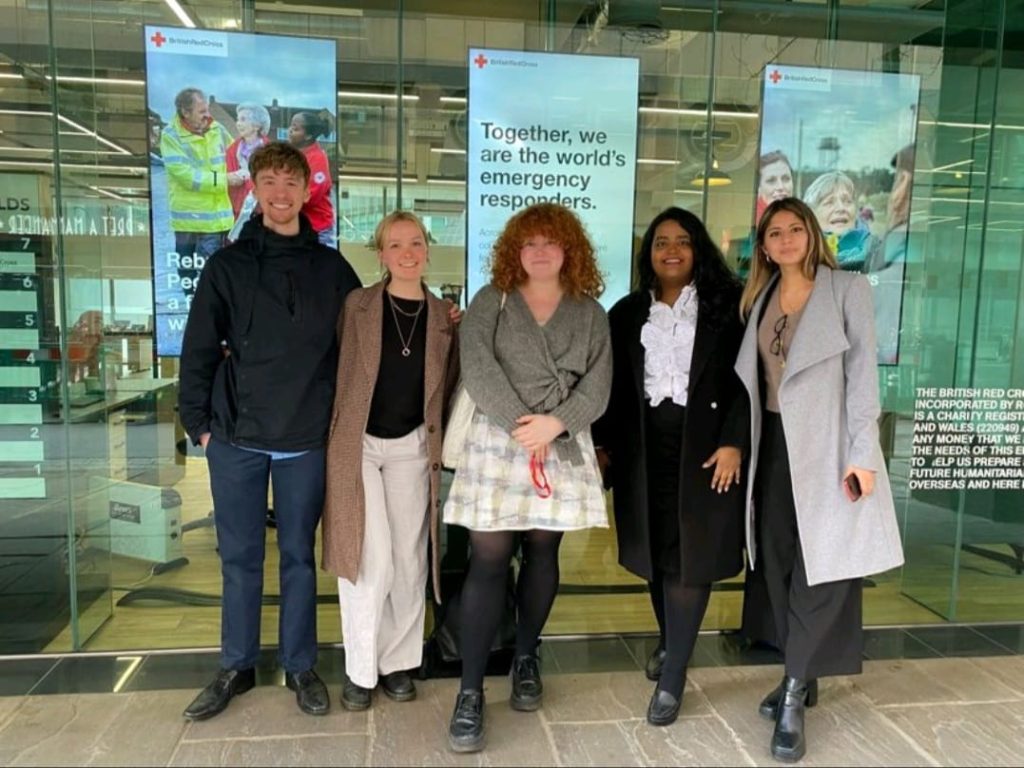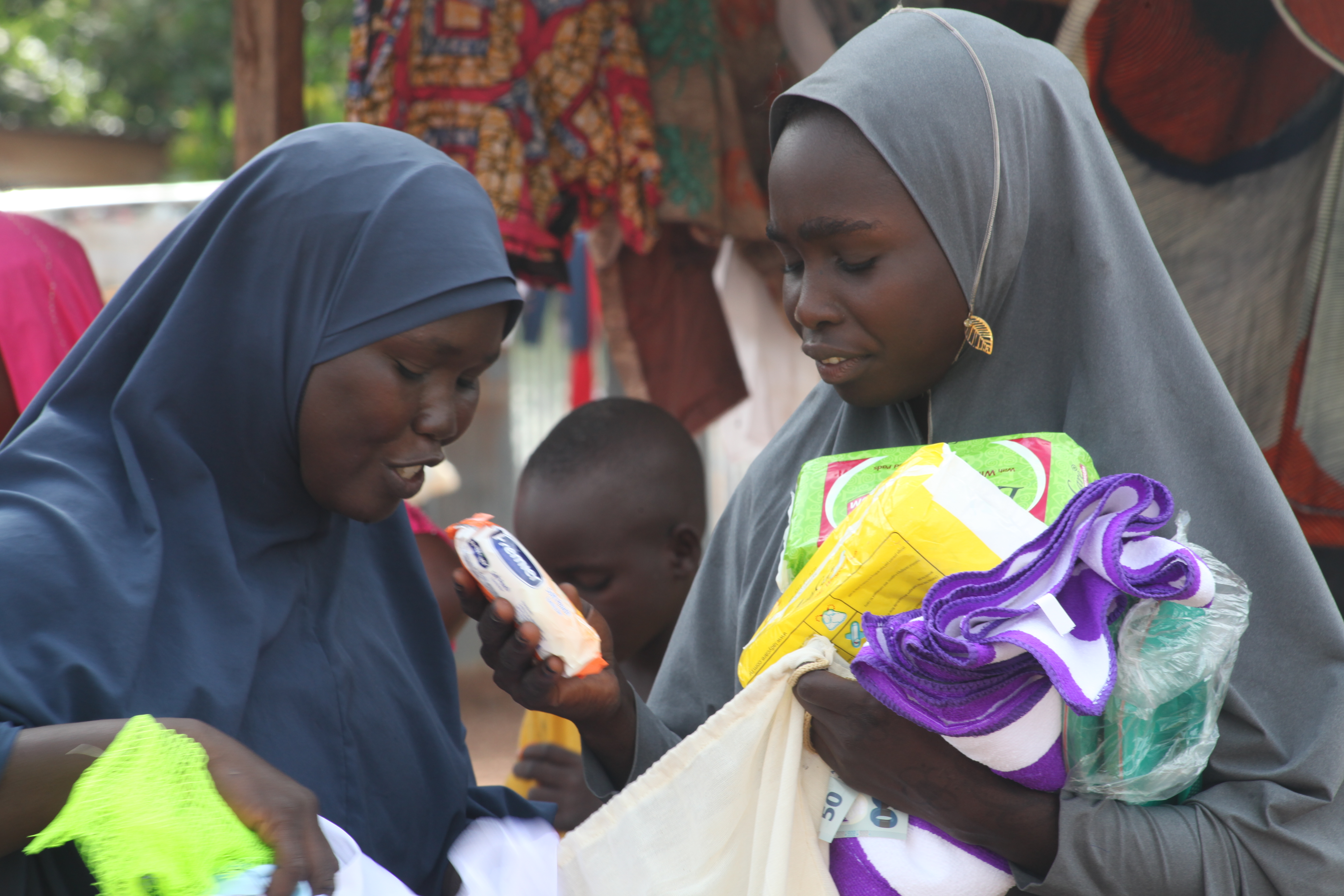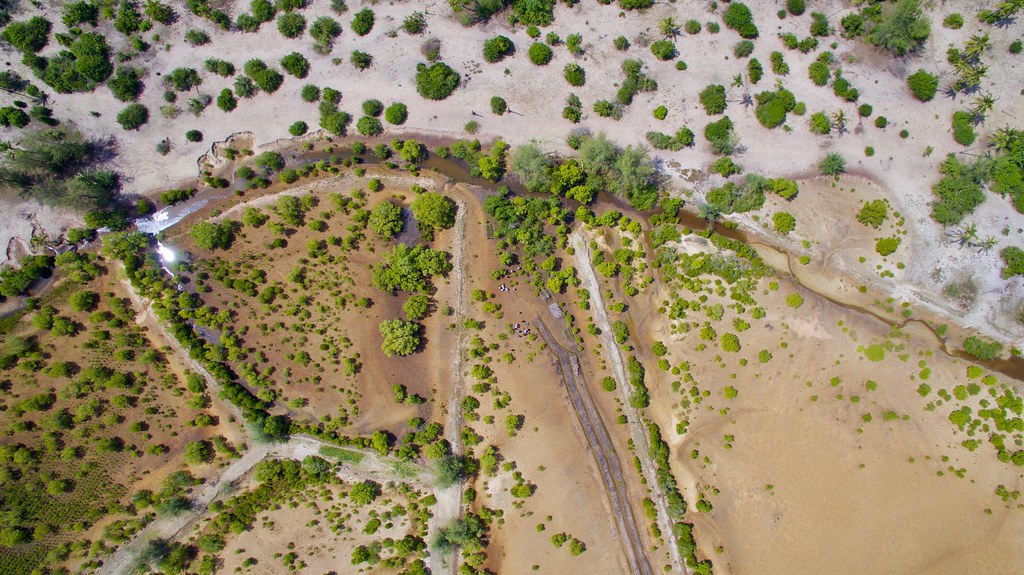The DV453 consultancy project, in collaboration with the British Red Cross, brought together students Alice, Ludo, Maria and Milinda to investigate the barriers faced by local actors in accessing climate finance in Africa. This article serves as a reflective account, by Milinda Mishra on the challenges they confronted and the invaluable insights they gained during the research journey.
From the project’s inception, we were fortunate to experience a promising trajectory. Each team member received their preferred choice of consultancy, allowing us to exercise our interests with the project assigned. Through consultation with our project mentor Dr. Stephanie Levy, we redefined the research questions, renegotiated the terms of reference and established realistic deliverables that satisfied both our team’s objectives and the client’s expectations. The alignment with the client proved to be a pivotal factor in our project’s success as the shared understanding of the objectives and expectations allowed us to negotiate a list of deliverables that could be submitted upon completion. Throughout the consultancy, we maintained a mutually agreed-upon meeting schedule, typically monthly, with additional meetings scheduled as needed. This facilitated a consistent flow of information and allowed us to address any concerns or questions promptly. Our client also graciously granted us significant flexibility in tailoring our theme, research questions and our methods as we saw fit for the study. This gave us more space to play with and enhanced the depth of our investigation.
However, as we delved deeper into the project, we figured that Climate finance, being a subject beyond our collective academic expertise, presented a significant hurdle. Understanding the intricate nature of the barriers faced by local actors in accessing climate finance required us to seek guidance from scholars and experts in relevant disciplines. The dynamic nature of climate finance literature further emphasised the need for accurate and up-to-date information. To ensure we were on the right path, we turned to the expertise of Professor Kathryn Hochstetler, who generously provided us with reading materials. These resources allowed us to navigate the ever-evolving landscape of climate finance, gaining familiarity with funding agencies, bilateral and multilateral finance mechanisms, and the global flow of finance between developed and developing countries.
To streamline our efforts, we adopted a divide-and-conquer approach, dividing the research into different sections based on the resources and literature available to. Maria aimed to analyse literature on general barriers that exist, Alice focused on Somalia and how conflict affects climate finance, Ludo and I focused on Tanzania and Kenya respectively and themes covering decentralisation and how climate funds are disbursed to local actors. The systematic approach helped the team members to initiate their respective inquiries, culminating in a comprehensive understanding of the subject matter. After dedicating a month to refining our research questions, by December, we successfully narrowed our focus to three countries; Kenya, Tanzania, and Somalia, prioritising the themes of decentralisation and conflict as they related specifically to these nations. This strategic narrowing of our research scope allowed us to delve deeper into the complexities of the chosen countries and their respective challenges in accessing climate finance.
Once we had clarified the countries and themes we intended to focus on, we communicated this to our clients, providing them with an overview of our research methods and the specific areas we would cover. By December, we finalised our approach, relying on secondary research for background information and seeking external evidence through interviews. Leveraging the British Red Cross’ connection with the climate centre, we initially aimed to obtain contacts from professionals in Africa who had experience in climate finance. However, encountering unresponsiveness, we took the initiative to conduct outreach ourselves, utilising platforms like LinkedIn.
Producing our report was a focused effort to understand the obstacles faced by local actors, specifically NGOs and community groups, in accessing climate finance from international funds. To grasp these barriers, we conducted an extensive review of literature, academic papers, and organisational reports. Through engaging in interviews and surveys with key stakeholders, we identified multiple barriers operating at various levels: the structure of climate finance, local capacity constraints, and social and political obstacles. By meticulously analysing these barriers, our goal was to gain insights into the constraints faced by actors and provide an understanding of how to overcome or address them. Our case studies on Kenya, Tanzania, and Somalia offered valuable insights into how barriers interact in areas with similar climate impacts but varying political contexts. For example, in Kenya, we observed that the government’s focus on mitigation limited funding availability for adaptation, although decentralisation facilitated engagement with local actors. In Tanzania, conflict in certain regions constrained international partnerships. The Somalian case study highlighted how conflict, coupled with resource scarcity and lack of trust in international presence, posed significant barriers for local actors.
Concluding our report, we presented a set of recommendations to improve the design and delivery of climate finance. These included promoting cross-sectional coordination for adaptation, recognising local knowledge, and adopting conflict-sensitive adaptive management approaches. Later, we were offered the opportunity to present in British Red Cross office in person and the Foreign Commonwealth Office with the dedicated support of Alexandra Holker and Adeline Siffert to share our findings. The meeting proved immensely valuable, shedding light on various dimensions of climate finance and its implications. Two key takeaways emerged from the discussion: First, emphasis on country-specific approaches that consider unique circumstances and challenges faced by each nation, and the recognition of the importance of localised perspectives in effectively addressing climate change. Second, the need to understand the differing angles in climate finance, including the humanitarian, climate, conflict, and development aspects. Through this discussion we realised that exploring these complexities is crucial for developing comprehensive strategies that integrate climate finance and ensure its effectiveness at the local level.
Engaging in these thought-provoking and inspiring exchanges of ideas and collaborative efforts made the DV453 consultancy project a truly remarkable experience to develop both our academic and career pursuits.

The views expressed in this post are those of the author and do not reflect those of the International Development LSE blog or the London School of Economics and Political Science.
Image Credit: GRID-Arendal resources library by: Rob Barnes via Flickr.





